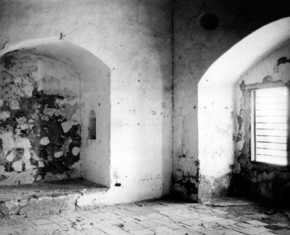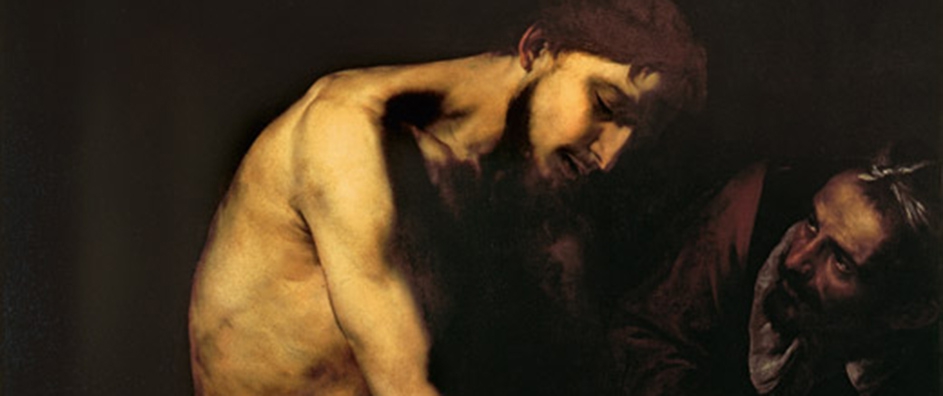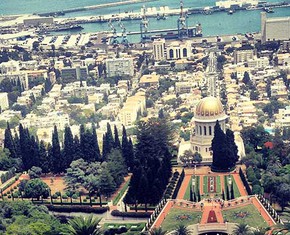The views expressed in our content reflect individual perspectives and do not represent the authoritative views of the Baha'i Faith.
Thou hast known how grievously the Prophets of God, His Messengers and Chosen Ones, have been afflicted. Meditate a while on the motive and reason which have been responsible for such a persecution. At no time, in no Dispensation, have the Prophets of God escaped the blasphemy of their enemies, the cruelty of their oppressors, the denunciation of the learned of their age, who appeared in the guise of uprightness and piety. Day and night they passed through such agonies as none can ever measure, except the knowledge of the one true God, exalted be His glory. – Baha’u’llah, Gleanings from the Writings of Baha’u’llah, p. 57.
In the first essay in this series, which asked why human beings torture and persecute their visionaries, we looked at the early life of Baha’u’llah, the prophet and founder of the Baha’i Faith. Raised in a prominent Persian family, Baha’u’llah:
…was ever, during His sojourn in this transitory world, either a captive bound with chains, or living under a sword, or subjected to extreme suffering and torment, or held in the Most Great Prison. Because of His physical weakness, brought on by His afflictions, His blessed body was worn away to a breath; it was light as a cobweb from long grieving. And His reason for shouldering this heavy load and enduring all this anguish, which was even as an ocean that hurleth its waves to high heaven — His reason for putting on the heavy iron chains and for becoming the very embodiment of utter resignation and meekness, was to lead every soul on earth to concord, to fellow-feeling, to oneness; to make known amongst all peoples the sign of the singleness of God, so that at last the primal oneness deposited at the heart of all created things would bear its destined fruit… – Abdu’l-Baha, Selections from the Writings of Abdu’l-Baha, p. 262.
These tribulations certainly weren’t voluntary, but in one sense they were optional. By simply denying the Baha’i teachings and recanting his faith, Baha’u’llah could have escaped the tortures and imprisonment he suffered.

But he didn’t do that. Instead, with the goal of unifying all of humanity, Baha’u’llah persisted–in spite of the terrible treatment he received for his peaceful, progressive and enlightened teachings.
After the first incident of torture in 1852, the Persian government unjustly imprisoned Baha’u’llah for his beliefs in 1853. The unspeakable torture he suffered during that imprisonment far surpassed what he had previously undergone. He spent four months in a miserable subterranean dungeon, bound by two hundred-pound chains with steel collars, in conditions so foul and filthy that few survived. Baha’u’llah bore the marks of those painful iron chains and fetters for the rest of his life.
While the founders of the world’s great Faiths all suffered from persecution—Christ for a total of three years, for example, or Muhammad for thirteen years—Baha’u’llah’s torture, torment and persecution would last forty years, from that first incident of the bastinado in 1852, until his death as a prisoner in exile in 1892. This long and excruciating record of Baha’u’llah’s repeated imprisonments, banishments, trials and tortures has no parallel in the history of religion. His sufferings, when taken together, have caused historians to ask whether anyone could evince greater human endurance for the sake of a cause.
The Baha’i teachings tell us that to create a better world for all people, Baha’u’llah bore innumerable persecutions in order to show humanity the face of divinity:
Baha’u’llah underwent severe trials, great difficulties and violent persecution. He was imprisoned, tortures were inflicted upon Him, and finally He was banished from His native land. He bore every ordeal and infliction cheerfully. In His successive exiles from country to country up to the time of His ascension from this world, He was enabled to promulgate His teachings, even from prison. Wherever His oppressors sent Him, He hoisted the standard of the oneness of the world of humanity and promulgated the principles of the unity of mankind. – Abdu’l-Baha, The Promulgation of Universal Peace, p. 105.
Why does this shameful cycle repeat itself so often? Why do the rulers and clergy of the reigning religious authorities constantly and consistently oppress the messengers of the newest Faiths? In fact, why does that exact same cycle repeat itself, not just with the founders of great religions, but with the founders of great science, whose discoverers have also been persecuted and reviled? Why do new ideas cause such negative reactions?
Baha’is believe that this historical pattern has its roots in the cyclical nature of belief. Throughout the ages, those cycles meant that new beliefs slowly spread, became widely accepted, then institutionalized, then gradually fossilized, then inevitably corrupt. The religious leaders and the political rulers who rose to power in those traditions became ingrained in their fanaticism and dogmatism. When a new teaching appeared, whether as a new belief system or a new scientific breakthrough, those with power and authority saw that new message as a threat, branded the messengers as heretics and violently cut off the voice of freedom, knowledge and the development of conscience.
The Baha’i teachings say this seemingly unavoidable sequence of events makes the renewal of religion necessary. Because human beings often revile and reject the new innovators and spiritual messengers, that renewal often involves pain, torture and suffering.
In the next essay in this series, let’s take a brief look at how that universal dynamic has played itself out in the history of Christianity.
















Comments
Sign in or create an account
Continue with Googleor